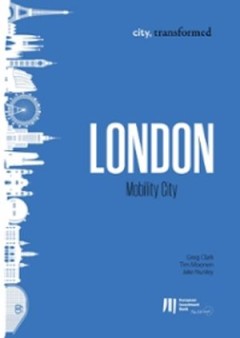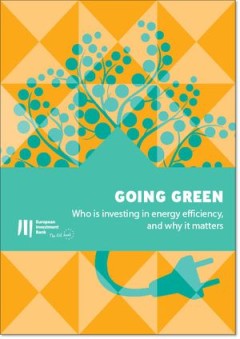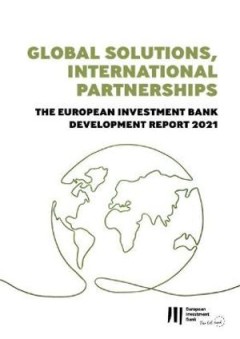Filter by

London : Mobility City
Despite the uncertainties of Brexit, London continues to be rated as a leading location in Europe and the world for business, knowledge, and talent. But 30 years ago, when London had no citywide government, a transport system in crisis, and no successful track record of continuous large-scale upgrades to the urban fabric, this scenario would have seemed highly unlikely. In this essay we examine…
- Edition
- -
- ISBN/ISSN
- 9789286138959
- Collation
- -
- Series Title
- -
- Call Number
- 650

Health is wealth
Surgical intervention saves lives, but health policies in the developing world have often been too feeble or too focused on treating specific emergencies, rather than ensuring that everyone has access to true universal healthcare. Many rural areas in Africa still have high maternal and infant death rates because there are no local surgeons. Many children drop out of school because their untreat…
- Edition
- -
- ISBN/ISSN
- -
- Collation
- -
- Series Title
- -
- Call Number
- 650

Life in Cyberspace
Internet is a real place. Every time we switch on our computers, use a program or an application, or log in to a social media site, we enter a virtual space made up of worlds, domains, forums and rooms. But we behave differently when we interact with technology: technology amplifies and accelerates our deeds; it can help us find useful information, benefit from a wide range of services and stay…
- Edition
- -
- ISBN/ISSN
- 9789286142956
- Collation
- -
- Series Title
- -
- Call Number
- 650

Hope and strength in the Western Balkans
The Western Balkans have been a crossing point between Central Europe and the East for centuries. Devastated by tragic conflicts, nationalism and neglected investments, the Western Balkan countries are striving to find a new equilibrium. Citizens and institutions in the Balkans have repeatedly affirmed their ambition to become part of the European Union and have made significant efforts to turn…
- Edition
- -
- ISBN/ISSN
- 9789286148293
- Collation
- -
- Series Title
- -
- Call Number
- 650

I have a dream
All athletes experience setbacks. But to have your limbs - the very tools you use to practice your sport - taken away by an illness at a young age is a setback that many would never overcome. Bebe Vio never gave up her dream of becoming a fencer, despite having her arms and legs amputated when she was eleven years old after suffering from fulminant meningitis. Instead of abandoning her dream of…
- Edition
- -
- ISBN/ISSN
- 9789286143137
- Collation
- -
- Series Title
- -
- Call Number
- 650

Going green : Who is investing in energy efficiency, and why it matters
Investments in energy efficiency improvements are vital to ensure Europe’s future as a sustainable, yet prosperous economy. Amid the COVID-19 crisis, however, there is a great risk of losing sight of the benefits of energy efficiency investments by European firms. The EIB Investment Survey (EIBIS) provides a unique source of data that highlights how more investment in energy efficiency is nee…
- Edition
- -
- ISBN/ISSN
- 9789286147128
- Collation
- -
- Series Title
- -
- Call Number
- 650

Global Solutions, International Partnerships
The climate crisis and the COVID-19 pandemic remind us that we cannot face down our challenges alone—our solutions must be global. The European Investment Bank is at the heart of the push to turn EU policy initiatives into real development solutions on the ground. This report provides insights into our vital projects and initiatives outside the European Union, data on their impact and ideas f…
- Edition
- -
- ISBN/ISSN
- 9789286150012
- Collation
- -
- Series Title
- -
- Call Number
- 650

Global reach : The impact of the EIB beyond the European Union 2019
The greatest challenges we face to today are global. This is true for climate change and the need to build new models of sustainable and resilient development. It is equally true for the coronavirus pandemic that threatens to erode some of the progress made on poverty reduction around the world. As the world’s largest multilateral development bank, the European Investment Bank (EIB) has the m…
- Edition
- -
- ISBN/ISSN
- 9789286147098
- Collation
- -
- Series Title
- -
- Call Number
- 650

Funding women entrepreneurs : How to empower growth
Intervention is needed to improve women-led companies’ access to finance. In a recent study, EIB’s InnovFin Advisory assessed the availability of finance for women-owned and managed companies in Europe as compared to the United States. While women-led companies account for only a small portion of financing deals and investment flows, their share is growing. Nevertheless, structural inequali…
- Edition
- -
- ISBN/ISSN
- 9789286143373
- Collation
- -
- Series Title
- -
- Call Number
- 650

Food for change
Massimo Bottura is more than a Michelin star-winning chef. Together with Lara Gilmore, he also founded Food for Soul, a non-profit organisation seeking to reduce food waste through social inclusion and mitigate the carbon impact on our planet. On the occasion of Expo 2015 in Milan and working in concert with Caritas Ambrosiana, Massimo Bottura opened Refettorio Ambrosiano, a new kind of communi…
- Edition
- -
- ISBN/ISSN
- 9789286142628
- Collation
- -
- Series Title
- -
- Call Number
- 650
 Computer Science, Information & General Works
Computer Science, Information & General Works  Philosophy & Psychology
Philosophy & Psychology  Religion
Religion  Social Sciences
Social Sciences  Language
Language  Pure Science
Pure Science  Applied Sciences
Applied Sciences  Art & Recreation
Art & Recreation  Literature
Literature  History & Geography
History & Geography